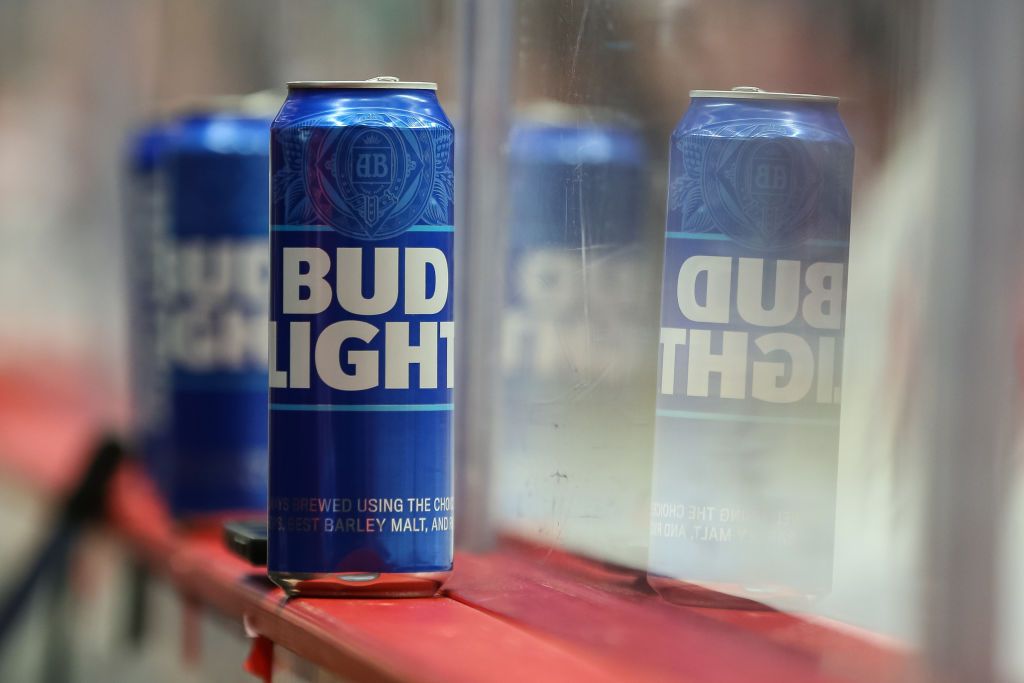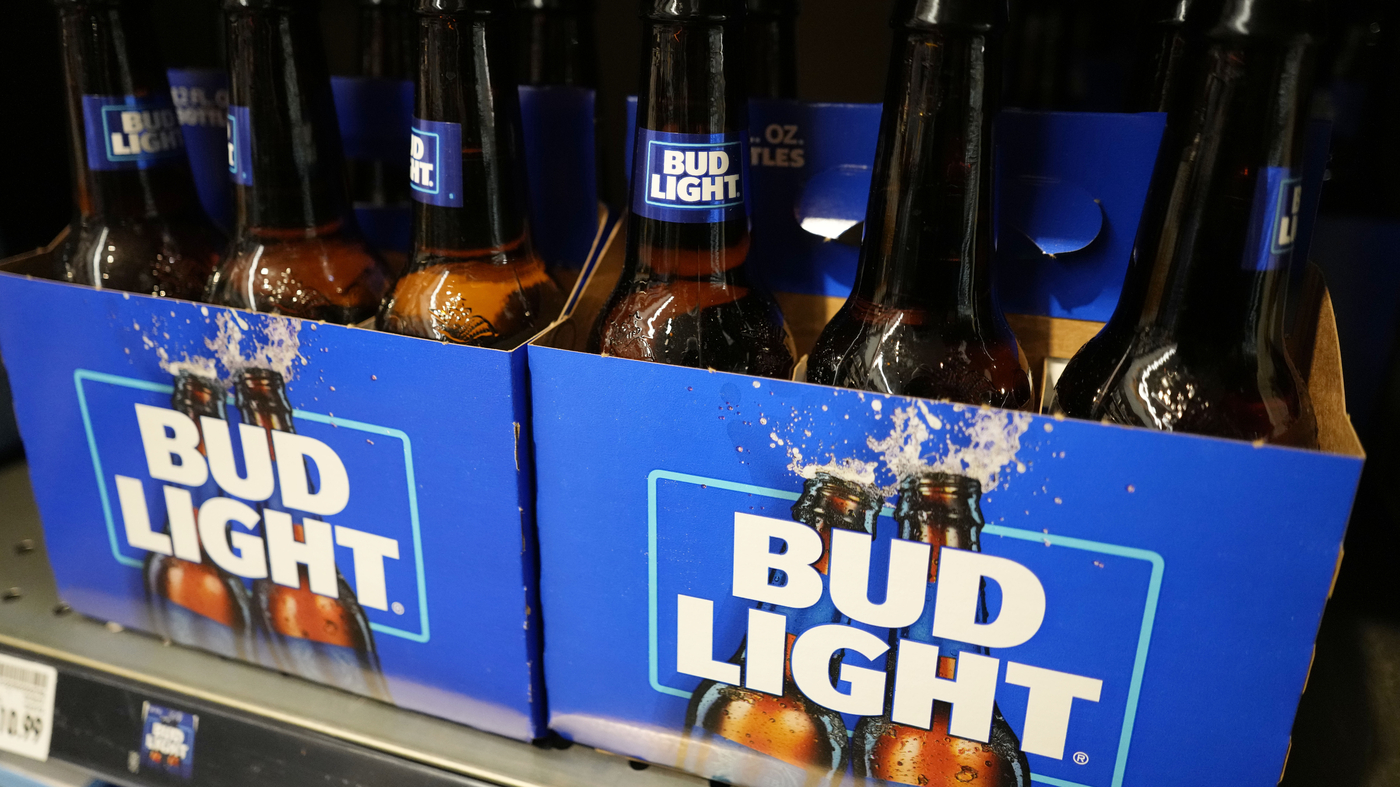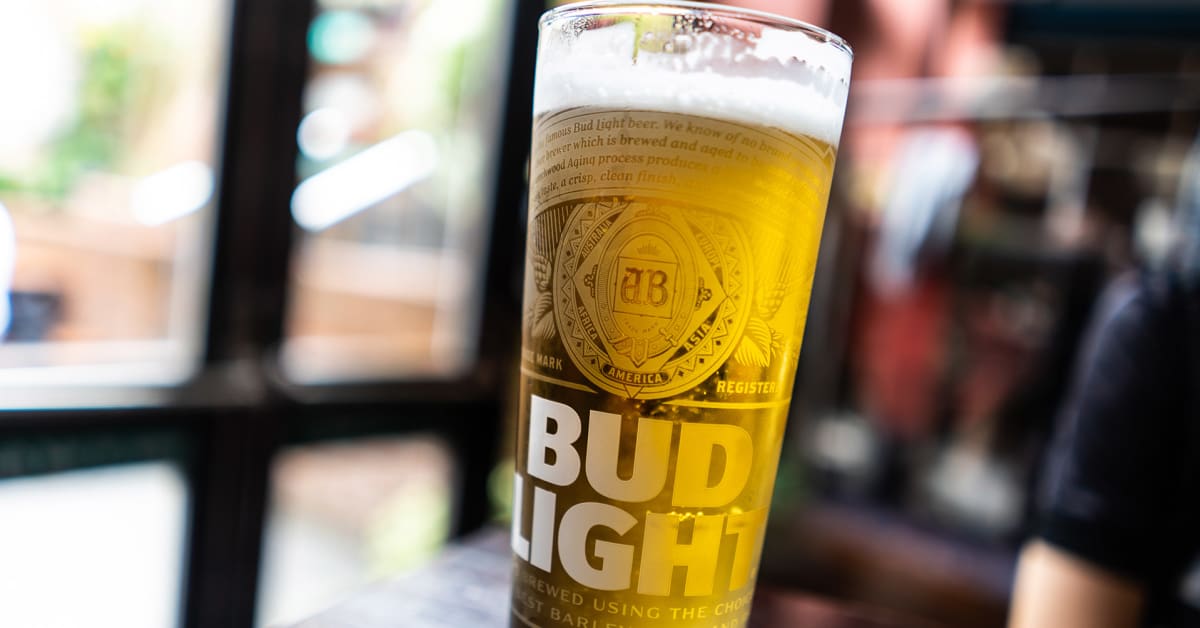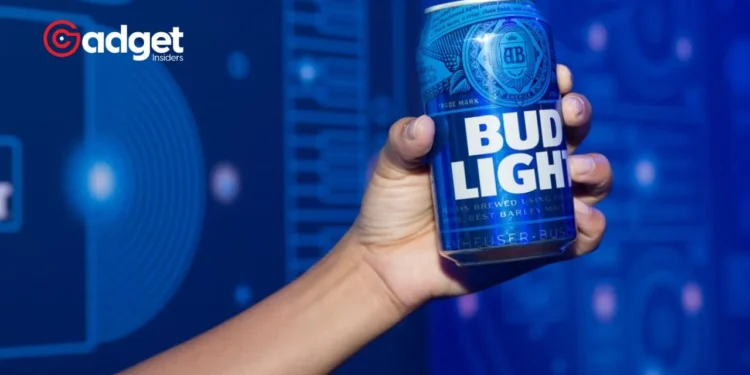In an era where brand associations can make or break public perception overnight, Anheuser-Busch InBev’s partnership with transgender social media influencer Dylan Mulvaney proved to be more than just a marketing move. However, it has nothing to do with the Bud Light Beer boycott. The former just ignited a firestorm, culminating in a dramatic boycott led by notable figures like Kid Rock.
This wasn’t a minor blip on the radar; Bud Light Beer saw a staggering 25% plummet in its sales. The incident served as a stark reminder that in today’s digital age, consumer loyalty is both precious and precarious.
Bud Light Beer: A Blow to the Bottom Line
The fiscal repercussions of the boycott were significant and immediate. Anheuser-Busch InBev (BUD) reported a 9.5% decline in revenue for the fourth quarter, with sales-to-wholesaler volume dipping by 12.7%.
Chief Executive Michel Doukeris attributed these drops primarily to Bud Light Beer’s declining sales, marking a challenging year for the company’s U.S. operations. Despite efforts to minimize the impact by shifting focus to other brands within its portfolio, the shadow cast by Bud Light Beer’s falloff loomed large.

Legal Tussles over Brand Rights
Adding to the turbulence, Anheuser-Busch InBev found itself locked in a legal battle with Constellation Brands over the rights to sell Corona and Modelo-branded hard seltzers in the U.S.
The courts ultimately sided with Constellation, a decision that underscored the complex nature of brand licensing agreements and the evolving definition of what constitutes “beer” in the legal and market landscapes.
Looking Beyond the Controversy
Despite these setbacks, Anheuser-Busch InBev remains optimistic about the future of beer, projecting continued growth led by its global megabrands. The company is doubling down on its traditional marketing strategies, steering clear of controversy, and strengthening its commitment to community and social causes.
Among these are the expansion of collaborations with organizations such as Folds of Honour and the alignment with major athletic and music events, which signals a return to the company’s beginnings to regain and extend its customer base.

The Road Ahead
The journey forward for Anheuser-Busch InBev is fraught with challenges but also ripe with opportunities. The company’s ability to navigate the aftermath of the Bud Light Beer boycott, adapt to legal rulings, and refocus its brand strategy underscores a resilience that is essential in today’s fast-paced, ever-changing market.
Anheuser-Busch InBev intends to not only recover but also prosper in the years to come by capitalizing on the diversity of its portfolio and bolstering its brand equity through strategic partnerships and involvement in the community.
Bud Light is no longer the top-selling beer brand in the United States amid a boycott over the company’s decision to produce a promotional beer can for transgender influencer Dylan Mulvaney.
They think they are too big to go broke. They are not. https://t.co/cNHeRzelLD
— Dr. Anastasia Maria Loupis (@DrLoupis) June 9, 2023
As a captivating case study on the complexities of brand management, consumer interaction, and the delicate balance between innovation and tradition in the brewing industry, the story of Anheuser-Busch InBev serves as a compelling example of all that has happened in the company’s history.
The company’s response to recent challenges will undoubtedly be closely watched by industry observers and competitors alike, as it seeks to redefine its legacy in the face of adversity.
“This wasn’t a minor blip on the radar; Bud Light Beer saw a staggering 25% plummet in its sales.” – On the impact of the boycott
“Chief Executive Michel Doukeris attributed these drops primarily to Bud Light Beer’s declining sales, marking a challenging year for the company’s U.S. operations.” – Reflecting on the fiscal repercussions

“The courts ultimately sided with Constellation, a decision that underscored the complex nature of brand licensing agreements.” – On the legal battle over brand rights










